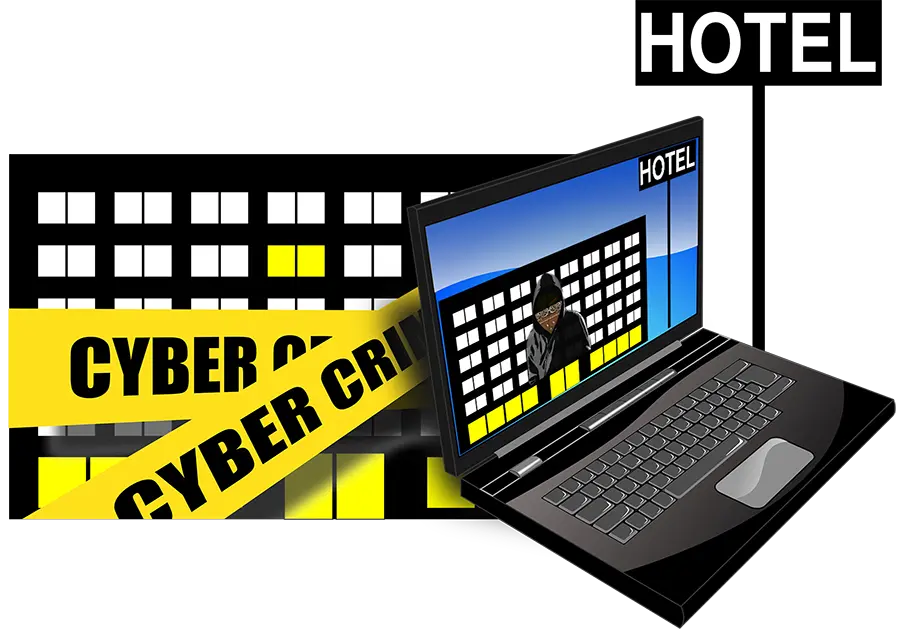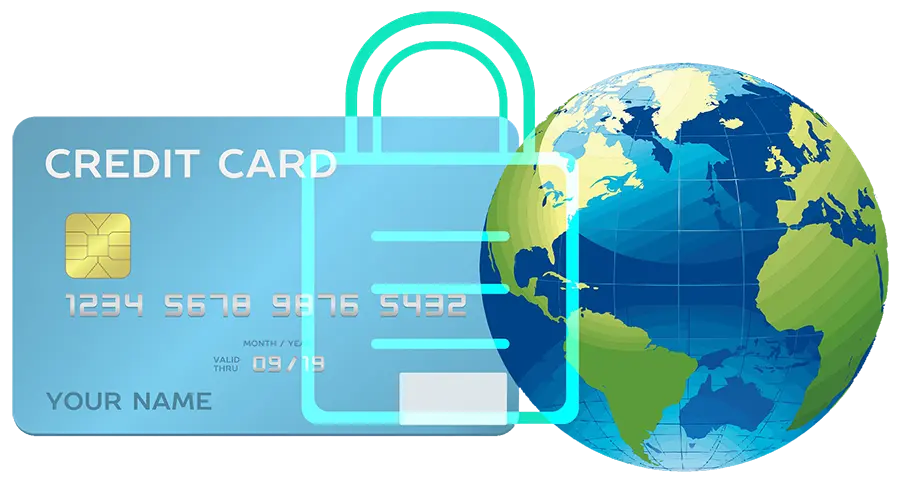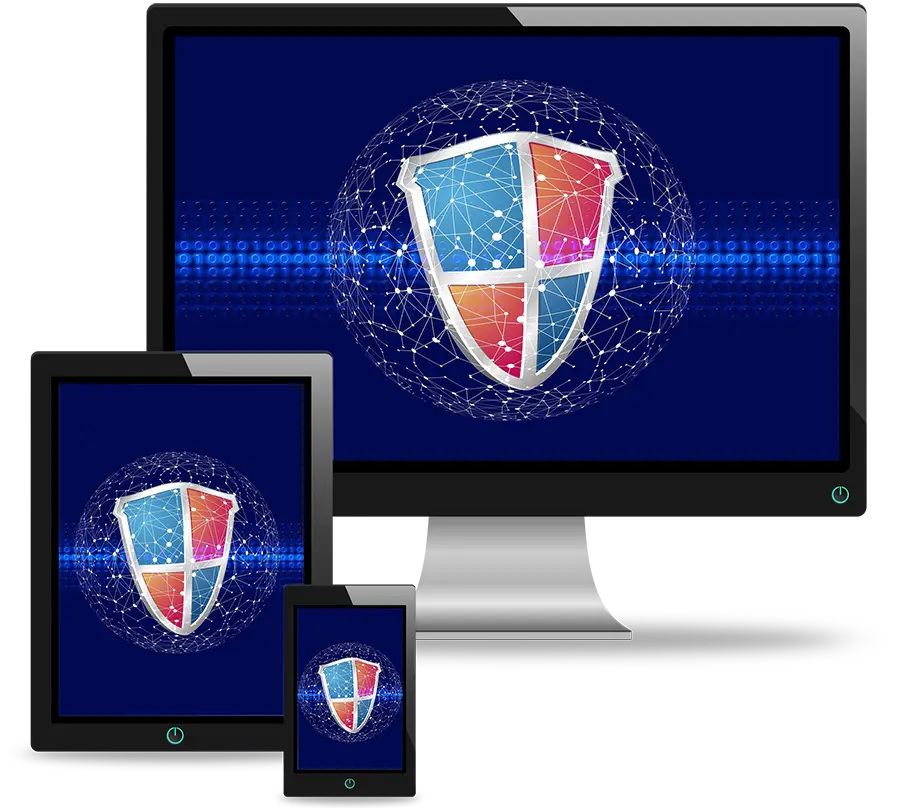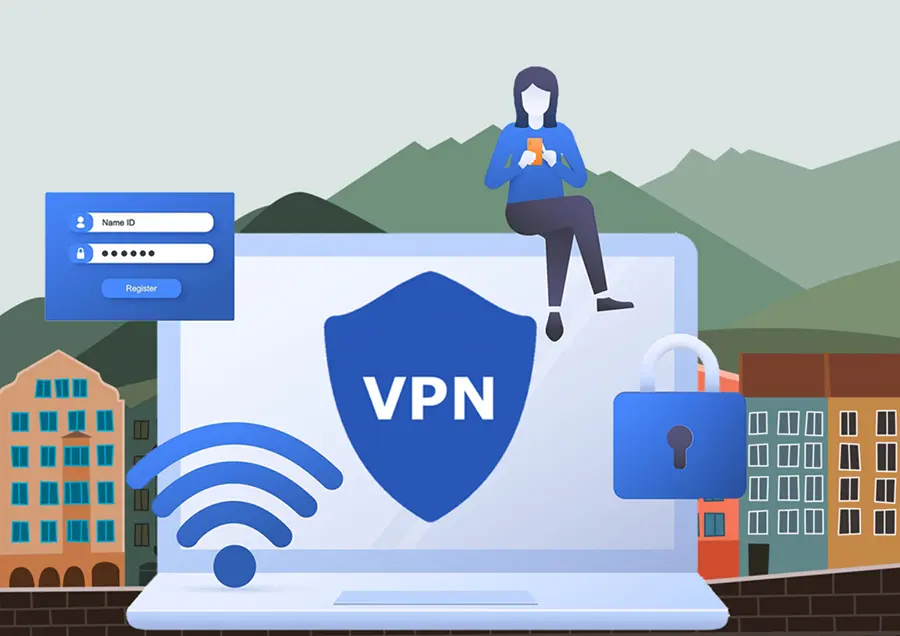Holiday Cybersecurity
Best Practices
Chuck's Cyber Wall
For many people, the holidays mean traveling to visit family, so it’s a good time to talk about some Holiday Cybersecurity Best Practices. As it so happens, my entire family lives two states away, and my niece decided to get married in November, so my wife and I started travel planning much earlier than usual. In making travel arrangements, I can tell you that there are a lot of travel scams!
Booking Scams
Since we’re staying in a hotel for all three trips, I started there. A ton of ads turned up in the search results, and I found one for a chain I like near the wedding location. However, when I arrived at the site, the cybersecurity expert in me glanced at the domain name, and something didn’t look quite right. The webpage looked like it belonged to that chain – the colors and logo looked good, but the domain name didn’t match.
I wondered if this might be paranoia caused by spending so much time talking about phishing scams.
Nope. It took a little digging, but I discovered that the site belonged to a third-party reseller. I bet you’re wondering how much that matters. Let’s see…
One of the top things the website focused on was room cleanliness. It claimed that for guest safety, all room surfaces were wiped daily, all towels and sheets were changed out daily, and the staff was required to wear masks and gloves at all times. This information felt a little dated. I’d been checking prices in the area, and room fees were close enough to what I am used to paying that it seemed pretty legitimate. But before booking anything, I opened a new browser and went to the company website.

To my surprise, that hotel location closed two years ago. Going back to that website, I decided to see how far it would let me go. Knowing that you can reserve a hotel room with a prepaid card, I went for it and received a room confirmation to stay one night at a hotel that’s been closed for two years.
Book Online Carefully
The Federal Trade Commission (FTC) received more than 65,000 reports of travel-related scams in 2023, with almost 60% of them related to reseller websites not honoring what they offer. Just because a website has a familiar logo or comes up at the top of your search results doesn’t mean it’s legitimate. Scam sites are known to steal branding. Do some research before booking, look for reviews, and never book with a debit card.
Strengthen Your Cybersecurity Before You Travel
After some trials and tribulations, we managed to legitimately book a nice hotel near the wedding location, but cybersecurity-wise, I still felt on edge from the initial experience.

Following this rabbit down the hole, I started looking for potential travel problems.
Financial Accounts
We have specific credit cards for travel, but how long has it been since we updated the passwords? For this one, I have to give a BIG shoutout to my wife. After every trip, she goes through and changes the account passwords for those cards and updates them in our password manager. Ensuring that your financial accounts are secure, whether you’re at home or traveling, should be a top priority for everyone. Strong Passwords are essential.
Backups
We both have laptops, tablets, and mobile devices that travel with us. Me, because I’m also a writer; my wife, because she has a reading obsession (that just surpassed 11,500 ebooks) and suffers from a compulsive need to monitor her work email. I’ve decided to find it cute. Since we both use cloud services, having a backup of everything is vital. If you thought using the cloud was backup enough, we should discuss Ransomware.
Remember, the cloud is just another term for a computer that belongs to someone else. So, if you accidentally upload malware to your cloud drive, you could lose everything. A Backup solution is vital; everyone should always have one, whether you’re planning to travel or not.
Antivirus
When was the last time you updated the antivirus on your travel laptop, tablet, or mobile phone? Wait, do you have antivirus on your tablet or mobile phone? If you don’t, you should. Hackers are clever – they’re creating malware for every type of device out there. Sure, a Windows-based virus can’t hurt an iPhone, but that doesn’t mean that your iPhone won’t carry it, waiting for you to plug it in to charge. And just like Typhoid Mary, your iPhone will transmit that virus to every Windows computer it touches.
That same is true regardless of the type of device or OS; that is the way the malware is designed. Most antivirus programs now offer mobile versions, and it is certainly something you should use and keep updated, again, whether or not you’re planning to travel.

VPN
Free WiFi is awesome when we travel. Or is it? The problem with free WiFi is that anyone else on it can monitor you. They can see what apps you’re using, watch you access bank information, and steal your passwords. A VPN will protect your online activity and keep prying eyes out of your transactions. And (you know what I’m going to say next) it doesn’t matter if you’re traveling or not – if you connect to public WiFi, you should absolutely be using a VPN!
Stay Cyber-Secure After You Arrive
One of the best things about traveling is just getting away. That means something different for everyone, but we all just want to enjoy the moment. Taking a break from that daily grind is necessary; taking a break from cybersecurity is not.

Unwind, but stay aware with these best practices:
- Don’t use free WiFi without a VPN – this is true for hotels, restaurants, coffee shops, stores, etc.
- Disable the auto-connect to wireless networks or BlueTooth devices – always choose whether or not to connect
- Think twice about social media posts – do you really want people to know you’re not at home?
- Avoid entering password information into shared computers – anyone could have installed a keylogger or other malware to steal credentials
- Always delete mobile connections to rental cars before you return them – rental car companies will not delete your information
No one wants to have their holidays ruined by hackers. Stay safe, stay secure, and stay aware.
If you’re not sure where to get started with cybersecurity, give us a call at 301-456-6931 or send an email to [email protected] and see why we are simply the Best Choice in IT Support Services.

Director of Cybersecurity and Marketing
I’ve always had a love of working with technology, being fortunate enough to have grown up with a grandfather who taught me how to fix things for myself and not be afraid to jump in and get my hands dirty. Over the last three decades, I’ve worked as a technician, trainer, technical writer, and manager in small businesses, enterprise organizations, and government. In addition, I’m an author, having published multiple works available online and in print. You can find my creative work at https://WritingDistracted.com

